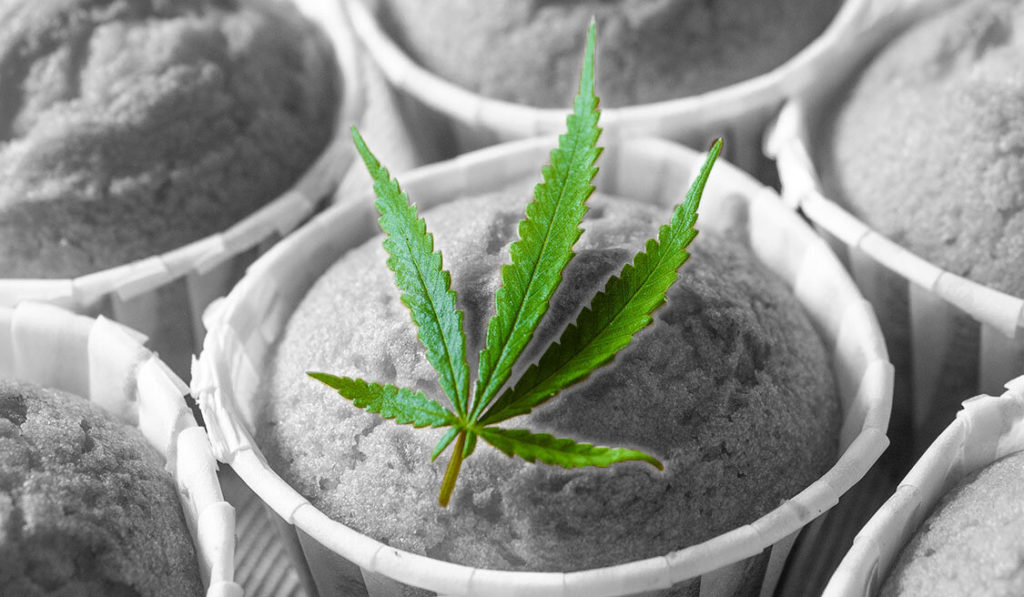D.C. cannabis card holders looking to master the art of baking the perfect pot brownie or using a high-tech vaporizer could soon get to learn from licensed professionals at their local dispensary.
Last week, D.C.’s Alcoholic Beverage Regulation Administration (ABRA) proposed new rules that would allow medical cannabis dispensaries to host educational events and demonstrations. That includes classes on how to “utilize marijuana paraphernalia” and “cook foods with medical marijuana,” according to the proposal.
The emergency rules, adopted in response to the coronavirus pandemic, are temporary for now. But ABRA could decide to make them permanent. The agency, which took over D.C.’s medical cannabis program last year, has scheduled a public hearing on April 28.
There’s a catch, though. ABRA’s latest guidelines still prohibit tastings, which allow patients to try cannabis products at a dispensary. “An educational activity that includes the smoking, administering or consumption of medical marijuana shall be prohibited,” the rules specify.
Still, medical cannabis professionals are praising ABRA’s proposed rules as an important step towards improving patient education and reducing stigma around the drug.
“We strongly believe in education,” said Rabbi Jeffrey Kahn, CEO of D.C.’s Takoma Wellness Center, a dispensary that he co-founded with his wife, Stephanie Kahn. “You have a lot of bad information out there on the internet. We want to provide what the patients want and meet them on their level.”
From a simple joint to alcohol-based tinctures, there are myriad ways to use cannabis, each requiring different degrees of expertise. Patients must also choose from dozens of flower strains with varying effects, aromas, and potencies.
Jeffrey says some patients come in with prior experience while others lack even the most basic understanding of the drug. “A lot of people who are cannabis naive are trying to figure out what is going to be the best method of ingestion for them,” he said. “Because there’s so little information available, because so much of it is anecdotal, it’s really important for us to work with patients.”
Before the pandemic, Takoma Wellness Center regularly hosted educational events. But until ABRA clarified its rules, D.C. law didn’t expressly allow demonstrations with cannabis, meaning dispensaries had to find substitutes. “We had cooking classes, we could give out recipes, we would have the demonstrations, but no cannabis involved,” said Stephanie Kahn.
Instead, they used oregano, an herb that may look vaguely similar to the untrained eye, but doesn’t have any psychoactive properties. The end result was less than ideal, Stephanie said . “It made it difficult and this will make it much, much easier.”
Launched in 2013, Takoma Wellness Center is a quintessential mom-and-pop operation that has quickly grown in a neighborhood known for its hippy origins and progressive politics. The dispensary now counts more than 40 employees, including the couple’s son and daughter-in-law. “It’s a true family business,” Stephanie said.
A former nurse of 30 years, Stephanie doesn’t take cannabis use lightly. Her father was in his thirties when he was diagnosed with multiple sclerosis, a painful auto-immune disease that attacks the central nervous system.
He struggled to find relief until a doctor recommended trying cannabis in the early 70s. Stephanie’s family was skeptical at first—the drug was illegal in all 50 U.S. states and little was known about its medical benefits. But they eventually embraced cannabis, which proved highly effective against her father’s nerve pain and muscle spasms.
Stephanie opened Takoma Wellness Center in memory of her father, who used cannabis until he died in 2005. “He was very nervous about using it, but found significant relief,” she said.
Around 30% of the dispensary’s clients are in their sixties or older, and many suffer from serious illnesses, Stephanie said. The store receives fewer in-person visits these days due to the pandemic, so they’ve set up a “cannabis nurse hotline” to keep up with patients.
“We’re trying to educate and to provide as many services as possible with minimal risk,” she said.
Stephanie and her husband look forward to hosting demonstrations (with cannabis, not oregano) as soon as it’s safe to hold in-person events. They’re hopeful D.C. will also lift restrictions on tastings so patients can sample cannabis products on the spot.
“People are concerned about spending a lot of money for something that isn’t going to work or isn’t going to taste good,” Jeffrey said. “It’s just like it works with most other things, people try something and then they decide whether they really want to buy it.”
The ban on tastings could soon be lifted if the D.C. Council passes the Medical Cannabis Amendment Act of 2021. The bill, introduced by Mayor Muriel Bowser in February, would allow dispensaries to apply for a 3-year permit to hold tastings in a designated room with specific security and ventilation standards.
The permit, called a “safe-use treatment facility endorsement”, would include a $1,000 application fee and cost $2,000 to renew each year.

